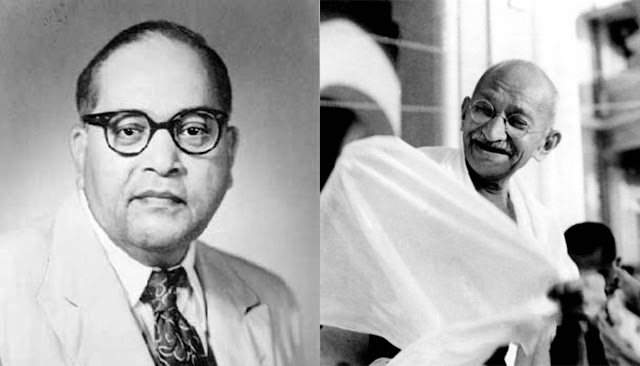ideological differences between gandhi and ambedkar are two of the most prominent figures in Indian history, who left a lasting impact on the country's society and politics. Both leaders fought for the rights and freedoms of the oppressed, but their approaches and ideologies differed greatly. In this article, we will explore the ideological differences between Gandhi and Ambedkar, and the impact of their ideas on modern India.
Background of Gandhi and Ambedkar
Mahatma Gandhi, born in 1869, was a leader of the Indian independence movement against British rule. He advocated for non-violent civil disobedience and was instrumental in leading the country to independence in 1947. On the other hand, Dr. B.R. Ambedkar, born in 1891, was a social reformer and the father of the Indian constitution. He was a strong advocate for the rights of Dalits, also known as "untouchables," and fought against the caste system in India.
Differences in Ideology
Gandhi's and Ambedkar's ideologies differed in several key areas.
Gandhi's Philosophy of Non-Violence
Gandhi was a firm believer in non-violence and advocated for peaceful resistance as a means of achieving political goals. He believed that non-violence was a powerful tool that could be used to bring about change without resorting to violence. This philosophy was demonstrated in several movements that Gandhi led, including the Salt March and the Quit India Movement.
Ambedkar's Philosophy of Constitutionalism
Ambedkar, on the other hand, believed that constitutionalism was the key to achieving equality and justice for all. He was a firm believer in the power of law and saw the constitution as a means of protecting the rights of marginalized communities. He was instrumental in the drafting of the Indian constitution and worked tirelessly to ensure that it reflected the principles of equality and justice.
Impact of their Ideas on Modern India
The ideas of Gandhi and Ambedkar have had a profound impact on modern India.
Gandhi's Legacy of Non-Violence
Gandhi's philosophy of non-violence has been adopted by numerous political movements around the world and continues to inspire people to this day. In India, his legacy has been instrumental in shaping the country's political culture, with non-violence being seen as a cornerstone of the Indian way of life.
Ambedkar's Legacy of Constitutionalism
Ambedkar's legacy, on the other hand, has been the constitutional framework that he helped to create. The Indian constitution is widely regarded as one of the most progressive constitutions in the world and has served as a model for many other countries. It has been instrumental in protecting the rights of marginalized communities and ensuring that all citizens have equal access to justice and equality.
Conclusion
In conclusion, Gandhi and Ambedkar were two of the most influential figures in Indian history and their ideas continue to shape the country to this day. While their approaches and ideologies differed, both leaders were passionate about fighting for the rights and freedoms of the oppressed. The legacy of Gandhi's non-violence and Ambedkar's constitutionalism will continue to inspire generations to come.
See Also:-
emergency in india 1975pakistan or partition of india







0 Comments